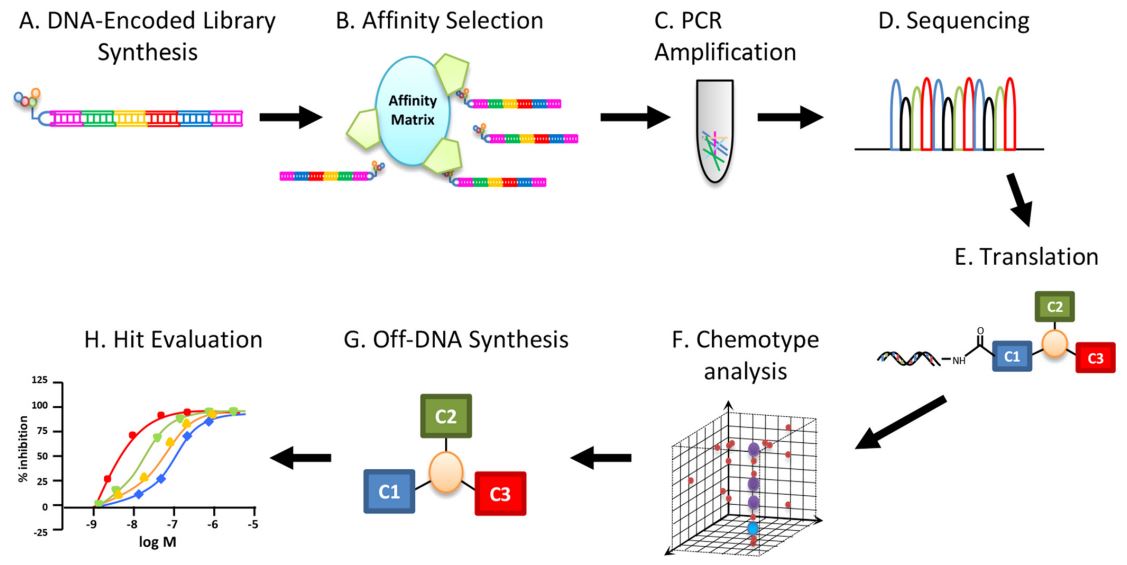- Computer-Aided Drug Design (CADD)
- DNA-Encoded Library Technology (DELT)
- Fragment-Based Screening
- High Content Screening (HCS)
-
High Throughput Screening (HTS)
- Automated HTS Platform
- Biochemical assays in Hit Characterization
-
Biophysical Assays in Hit Characterization
- BLI for Affinity-based Hit Screening
- CD Spectrometry for Protein Structure Determination
- ITC for Binding Assessment
- MS for Structure Confirmation
- MT for Binding Affinity Measurement
- NMR Spectrometry for Tareget identification and Characterization
- SPR Spectrometrys for Structure Determination
- TSA for Protein's Stability Evaluation
- Cellular assays in Hit Characterization
- Drug Repurposing
- Hit Screening
- HTS Assay Development
- HTS Compounds Libraries
- HTS Data Management
- Virtual Screening (VS)

One-stop
Drug Discovery Services
- Experienced and qualified scientists functioning as project managers or study director
- Independent quality unit assuring regulatory compliance
- Methods validated per ICH GLP/GMP guidelines
- Rigorous sample tracking and handling procedures to prevent mistakes
- Controlled laboratory environment to prevent a whole new level of success
DNA-Encoded Library Technology (DELT)
INQUIRYDNA-encoded compound library technology is one of the most cutting-edge approaches in the field of new drug discovery. It combines DNA-encoded compound library and other advanced compound identification methods. In this technology, DNA-encoded compound libraries provide billions of compounds and each of them is marked by a known and unique DNA sequence. All of compounds are mixed in a single centrifuge tube for screening and DNA sequence amplification, and sequencing are applied to identify active compounds.
 Fig.1 Schematic of DELT technology. (Christopher, A. M.; et al. 2015)
Fig.1 Schematic of DELT technology. (Christopher, A. M.; et al. 2015)Advantages
Cost-effective: The DEL library can be built rapidly and easy to maintain.
Time-saved: Shorten the screening cycle.
High efficient and high throughput: The DEL library usually contains a huge number of compounds.
Our Services of DELT
DELT compound library design and synthesis
The discovery of small molecules that can bind to target proteins and produce biological effects plays an essential role in the development of innovative drugs. BOC Sciences has designed a DNA-encoded compound library to support high throughput screening and obtain potential lead compound molecules.
DELT compound library screening
We perform the screening of billions of small molecules in a single vessel against a target of interest. The conduction of multiple screening experiments in parallel offers informative and reliable output.
High-throughput sequencing
Our experts then apply the DNA amplification and sequencing methods to determine whether the molecules have an affinity for your target. We have built a powerful high-throughput sequencing platform which enables to provide different sequencing throughputs and a wide range of sequencing services.
Data analysis
The results of sequencing provide rich information on the structural characteristics of ligands. At BOC Sciences, we use our advanced bioinformatics tools to translate the data of DNA sequence into chemical structure, and then analyze the useful enriched features which refer to a group of compounds that share a common scaffold or building block.
Off-DNA Compound Re-synthesis
We synthesize the promising molecules without the DNA tag attached to and characterize their biochemical or biophysical properties. With professional synthetic knowledge, our experienced chemical teams can propose the most potential hit compounds.
Hits validation
After the hit compounds are re-synthesized without the DNA tag, we perform diverse biophysical and biochemical testings for the activity verification of these de-tagged hits, confirming that they exhibit the desired activity.
Hit-to-lead optimization
In the last step of our DELT procedure, we conduct the structure optimization to obtain seed compounds. The structure-signal relationships (SSR) analysis is applied to help accelerate hit-to-lead process.
Our Advantages of DELT Services
We have accumulated rich experience in designing and screening of DNA-encoded compound libraries.
Our teams apply this technology to help you identify and optimize the emerging compounds, improving the speed and efficiency of your project.
Reference
- Christopher, A. M.; et al. Encoded Library Technology Screening of Hepatitis C Virus NS4B Yields a Small-Molecule Compound Series withIn VitroReplicon Activity. Antimicrobial Agents and Chemotherapy. 2015, 59(6): 3450-3459.
※ It should be noted that our service is only used for research.
Online Inquiry

